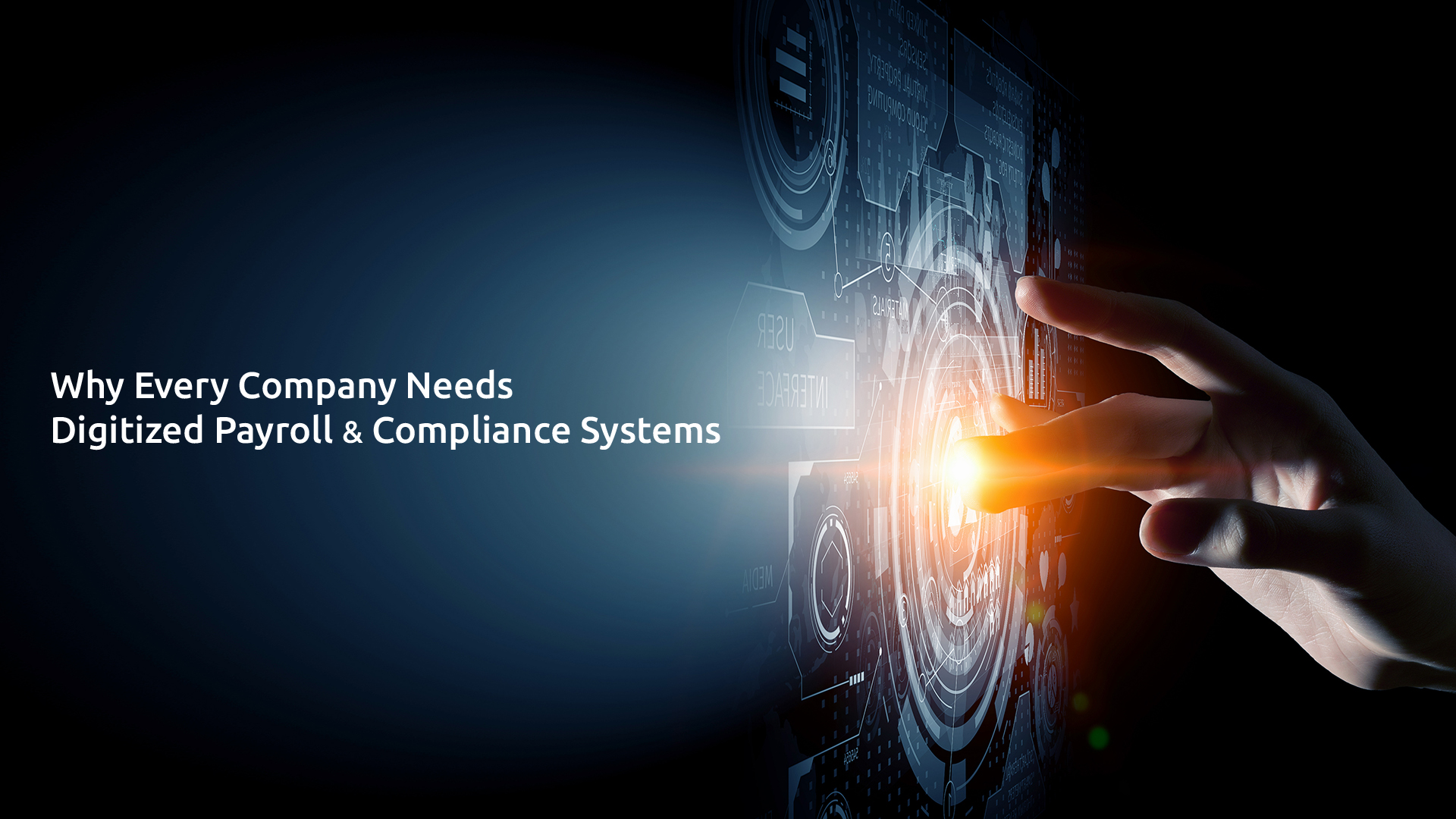
Why Every Company Needs Digitized Payroll and Compliance Systems
Picture this: it is the end of the month and your employees are expecting payment. It is also the time when payroll compliance audits are due. For years now, you have depended on a trusted employee to take care of your company’s payroll processing manually, while also ensuring statutory compliance.
However, your payroll manager resigned unexpectedly leaving you without a replacement to take over in an effective manner. As a result, your payroll processing and compliance suffers.
This is just one situation organizations have to deal with when it comes to manual payroll compliance or processing systems. HR functions that are still dependent on excel sheets or other simplistic documents are time-consuming, prone to error, difficult to standardize, and can also be a security concern.
Going Digital
The technological revolution has allowed businesses, of all sizes and across industries, to move their payroll processing, payroll compliance, and other human resource requirements to a single, centralized system.
Digitized and automated payroll processes address HR shortcomings to enhance productivity. Comprehensive HR solutions can also provide end-to-end support for employee onboarding, communication, payroll automation, tax compliance, and risk mitigation. Since they are all available on one integrated platform, it becomes easy to navigate and monitor.
Digitization improves transparency. In manual systems, one person or a team has access to all payroll information and sharing this with employees can become a cumbersome task. HR software has tools that allow employees to access their information remotely, thereby making it simpler to raise any concerns they may have.
The human factor
In technological systems, human accuracy is most crucial at the input stage when someone needs to feed employee data into the software for the first time. Following that, automation takes care of calculating compensation, benefits, taxation, or other needs.
A single person or a team will no longer have to take responsibility for tracking dynamic regulatory changes and compliance policies laid down by the law. For instance, Allsec’s payroll experts have extensive knowledge about payroll laws in India. We monitor changes in real-time and update our systems in a timely manner, so you can relieve yourself of the responsibility to stay on top of legalities across jurisdictions.
Allsec’s suite of HRO services leverages automation and process re-engineering with check-points at all key stages to ensure input sanitization and accurate results. Equipped with features like deep-dive analytics, and chatbots for quick responses, these services can make payroll management seem like a dream for organizations.
The Transition
A common misconception is that there is great cost effort involved in incorporating a new system of processing. However, switching from a manual HR system to a digital solution does not require a complete overhaul. Most solutions can extract relevant data and regulatory information from existing files through a combination of Robotic Process Automation and NLP. Even if manual input is necessary, it is a one-time investment that will make all future payroll processing smooth.
Having an updated system in place also paves the way forward in AI-enabled solutions. After all, it’s easier to climb a hill than the Everest.
Digital solutions for HR management are a worthwhile investment for organizations of any size, in any stage of operations. It will bring consistency into HR processes, improve productivity and compliance through resource optimization, and ultimately contribute to the bottom line.


